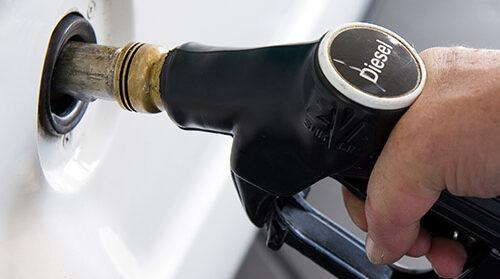Arval predicts diesel drop in UK fleet

Arval has announced that it expects the percentage of diesel vehicles on its UK fleet to fall from 90% today to 78% in 2020, as it launched a new white paper.
Called ‘Clearing the Air Around Diesel’, it is designed to provide fleets with guidance around diesel to help them formulate future policies. The document covers areas including the regulatory framework, manufacturer strategies and general fleet approaches.
Shaun Sadlier, head of consultancy said, ‘During the second half of last year, diesel became perhaps the most discussed topic with our fleet clients.
‘Our view at that point in time was that a lot of what was being said and being reported was spurious, and that the correct thing to do was to wait and formulate a position that we believed was correct and sustainable. This measured thinking forms the basis of our white paper.’
He said that, in the short term, Arval expected a moderate rebalancing of diesel and petrol on its fleet as the pump prices of diesel became progressively less attractive and manufacturers invested less in diesel technology for smaller vehicle segments.
‘These factors favour petrol cars over their diesel counterparts but we expect there to also be a gradual increase in the volume of hybrids as awareness around true CO2 and NOx grows.
‘Hybrid technology has been available for around 20 years, is well-proven and, as it progresses with the widespread availability of 48V solutions, we expect it to form a larger part of our fleet.
‘Elsewhere, full EV solutions will remain niche products as long as there are questions marks over their range capabilities and also the need for further development of the recharging networks. But clearly these vehicles will also have an increasing part to play.’
He added, ‘Certainly, our view continues to be that the fleets of the future will use a mix of all available fuels and that diesel will continue to be a viable and important element. Arguably, the difficult part will be making the right fuel choices for the right applications, and we see helping fleets make these decisions as a key part of our consultancy offering moving forward.’








